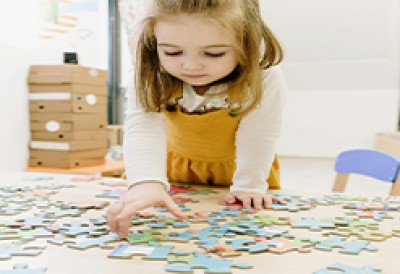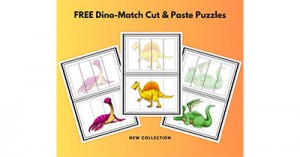Here are 20 engaging activities designed to boost problem-solving skills in preschoolers. Each activity offers a playful and hands-on way to stimulate critical thinking, spatial awareness, and decision-making while keeping learning fun.
-
Shape Sorters:
Give children a set of shape sorters where they match various shapes to their corresponding openings. This activity develops spatial recognition and logical reasoning as preschoolers figure out how shapes fit into designated spaces. -
Building Towers with Blocks:
Encourage children to build towers or structures using blocks. They experiment with balance, discover which configurations work best, and learn through trial and error—enhancing both their fine motor skills and critical thinking. -
Treasure Hunts:
Set up a treasure hunt in your classroom or home with simple clues or picture riddles. As children decipher clues and search for “treasure,” they practice following multi-step directions and learn creative problem-solving. -
Memory Matching Games:
Use a set of cards placed face down and ask children to flip and match pairs. By boosting their memory and concentration, this activity also encourages strategies for solving subtle challenges. -
Jigsaw Puzzles:
Provide puzzles with large, colorful pieces that fit together to form an image. As children work on puzzles, they build spatial awareness and learn to see how individual pieces contribute to an overall picture. -
Obstacle Courses:
Create an indoor or outdoor obstacle course with items that children must navigate around or over. This activity challenges them to plan their movements and find the best route, combining physical play with cognitive planning. -
Sorting and Matching Games:
Use everyday objects like buttons, colored cups, or blocks and ask children to sort them by color, size, or shape. This simple classification game engages their logical thinking and decision-making skills. -
Simple Board Games:
Play age-appropriate board games (such as a child-friendly version of “Candy Land”) that require taking turns, following rules, and making small strategic decisions during gameplay. -
Pattern Recognition Activities:
Create sequences using colors, shapes, or sounds and ask the children to figure out what comes next. Recognizing and predicting patterns nurtures their logical reasoning and attention to detail. -
Simple Science Experiments:
Engage preschoolers with basic experiments—like mixing vinegar and baking soda to create a “volcano.” They learn to predict and observe cause-and-effect relationships, which is key to problem solving. -
Tangram Puzzles:
Provide a set of geometric pieces and ask the children to form specific shapes or figures. Tangrams encourage spatial visualization and offer a hands-on approach to understanding how different pieces combine to form a whole. -
Multi-step Crafts:
Plan a craft activity with several steps—such as constructing a simple paper collage or crafting a paper plate spinner. Following a series of instructions in order helps develop a child’s ability to plan and sequence tasks. -
Group Storytelling:
Start a story and invite each child to add the next sentence or idea. This collaborative activity encourages listening, logical sequencing, and creative problem solving as the narrative unfolds. -
Indoor Scavenger Hunt:
Provide a list of items for the children to find around the classroom or home. They must plan a strategy and work through a series of clues or categories, learning to organize their search effectively. -
Simple Coding Games:
Use colored cards or tokens as “commands” and set up a game where children arrange the cards in the correct order to move a toy through a pre-designed route. This introduces early concepts of sequencing and algorithmic thinking. -
Balloon Challenge:
Create a game where children must keep a balloon in the air without using their hands (or using only their non-dominant hand). They strategize different ways to achieve an objective, learning flexibility in their thinking and problem-solving. -
DIY Maze Drawing:
Draw a simple maze on paper or create one on the floor with tape. Ask the children to navigate from start to finish, or challenge them to design their own mazes—a fun way to practice planning and spatial reasoning. -
Laundry or Toy Sorting:
Turn routine tasks into a learning activity by having children sort laundry or toys by color, size, or type. This familiar chore becomes a playful problem-solving exercise in categorization. -
“Who Am I?” Guessing Game:
Provide a series of clues about an animal, object, or character and let the children ask yes/no questions to narrow down the answer. This game enhances deductive reasoning and teaches them to use process-of-elimination strategies. -
Egg Drop Challenge (Simplified):
Using materials like paper, plastic cups, and tape, encourage children to design a container that will protect a small object (or an egg, if you're feeling adventurous) from a low drop. This creative, hands-on task nurtures iterative thinking and the willingness to experiment with different ideas.
Each of these activities is adaptable based on age and developmental stage. Through playful challenges, preschoolers build resilience and confidence in their problem-solving skills—a foundation that benefits them both now and as they grow.
Further Reading
Problem-Solving Strategies For Children
Importance Of Puzzles In Early Childhood
Cognitive Concepts In Young Children







 Open ended questions cannot be responded to with one word answers such as yes or no. These types of questions enables a child to provide
Open ended questions cannot be responded to with one word answers such as yes or no. These types of questions enables a child to provide During your child’s preschool years, an important milestone begins to emerge. This is the development of pre-writing skills. Pre-writing skills are used to encourage, develop
During your child’s preschool years, an important milestone begins to emerge. This is the development of pre-writing skills. Pre-writing skills are used to encourage, develop Open ended materials enables children to play freely. They are objects that have no rules to follow, use or function. Raw materials that can be
Open ended materials enables children to play freely. They are objects that have no rules to follow, use or function. Raw materials that can be An Acknowledgment of the Country is a way of showing respect for the Traditional Owners and can be given by both non-Indigenous people and Aboriginal
An Acknowledgment of the Country is a way of showing respect for the Traditional Owners and can be given by both non-Indigenous people and Aboriginal Language plays an important role in a child’s development. It enables a child to communicate effectively with their family, learn at school, socialize with friends,
Language plays an important role in a child’s development. It enables a child to communicate effectively with their family, learn at school, socialize with friends, Like adults, children have to deal with their own stress in life. Moving house, starting a new school, preparing for a new sibling - these are
Like adults, children have to deal with their own stress in life. Moving house, starting a new school, preparing for a new sibling - these are Playdough is such a versatile material. It provides numerous benefits to children as they manipulate it, it is safe and soothing and provides children with
Playdough is such a versatile material. It provides numerous benefits to children as they manipulate it, it is safe and soothing and provides children with Teaching children about sustainability enables them to appreciate and respect the natural environment. Early childhood services can provide meaningful hand on learning experiences in order
Teaching children about sustainability enables them to appreciate and respect the natural environment. Early childhood services can provide meaningful hand on learning experiences in order Recycling is an important concept that teaches children to care for the environment. It encourages children to be responsible and show a growing appreciating for
Recycling is an important concept that teaches children to care for the environment. It encourages children to be responsible and show a growing appreciating for When children apply paint to paper, glue things together, or pound a lump of clay, they experiment with colour, shape design and texture.
When children apply paint to paper, glue things together, or pound a lump of clay, they experiment with colour, shape design and texture.



